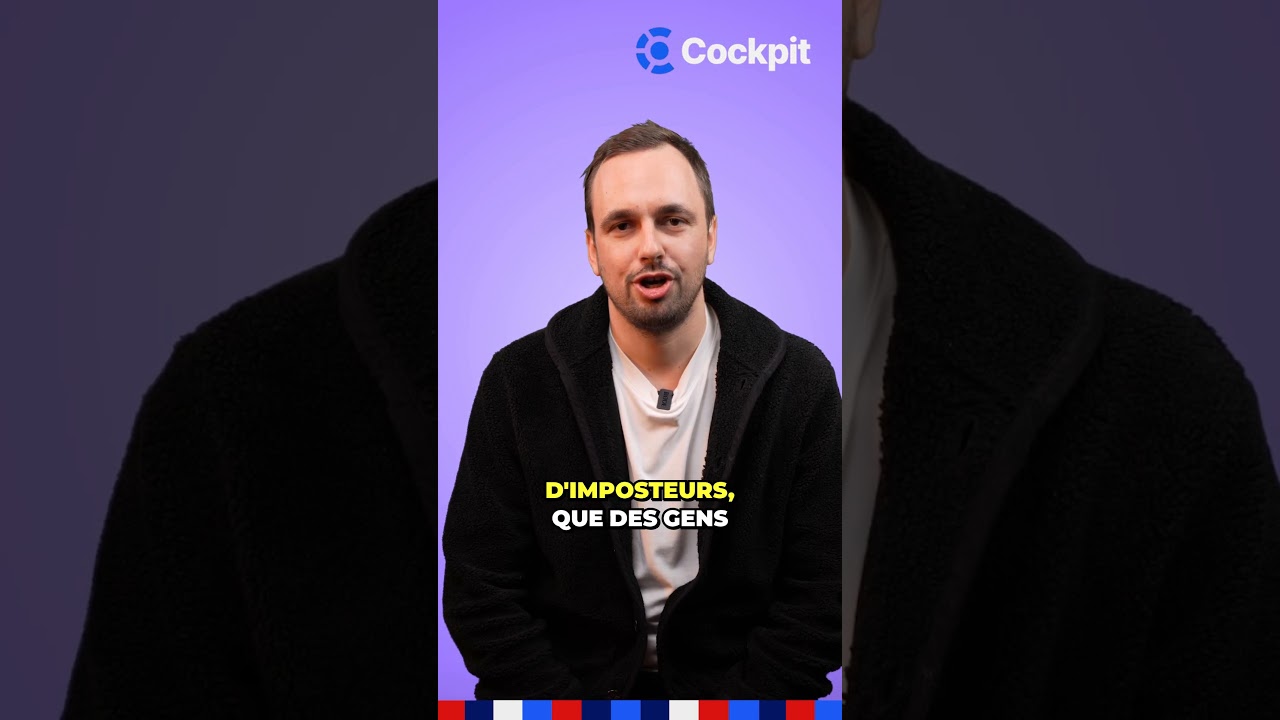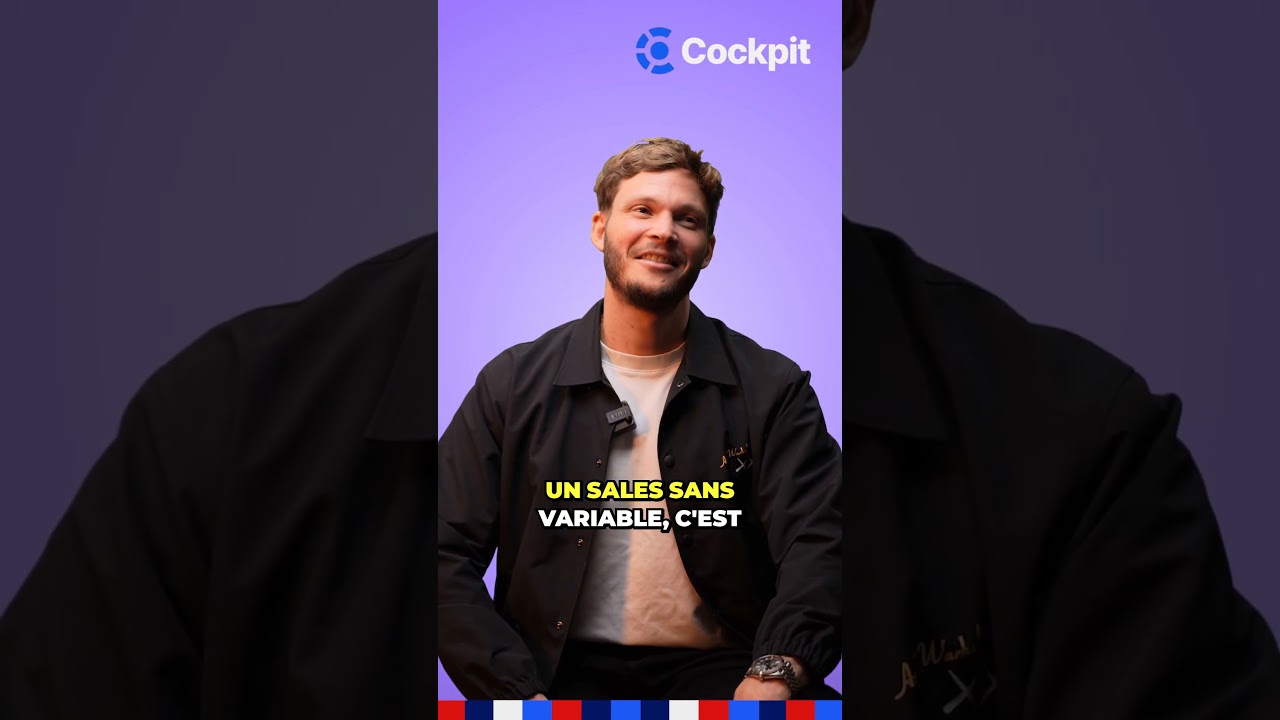A CEO Who Shares His Proven Method for Building a Sales Team
Antoine Fort, CEO and Co-Founder of Qobra, delivers his precise method for building a sales team in a startup with precision. His pragmatic and structured approach reveals the experience of an entrepreneur who has gone through all stages of commercial growth.
How to Build Your Sales Team in an Early-Stage Company?
Step 1: The CEO Must Sell
"The first step is when you don't have a sales team and you have to make 100,000 euros ARR alone because if you don't sell yourself, how can you convince someone, anyway how can you blame someone you recruited for not selling? Impossible."
Antoine establishes a fundamental principle: the CEO must be their company's first salesperson. This rule is non-negotiable - reaching 100,000 euros ARR solo demonstrates not only the product's viability, but also the leader's legitimacy to demand results from future collaborators.
Step 2: Recruit and Train Progressively
"The second step is to recruit and train one, two, three people progressively who will be able to sell. So if you know how to do it, it means you know how to manage a sales team."
Once the proof of concept is established, Antoine advocates progressive team growth. Having sold yourself becomes the guarantee of credibility for training and managing your salespeople.
Step 3: Delegate to a Head of Sales
"The third step is to recruit a Head of Sales who will manage this team, and again, to whom you have proven it was possible, did you do it before? And there you start to move out of the really very early stage phase and it will be up to your Head of Sales to build the rest."
Recruiting a Head of Sales marks the transition to a more mature organization. This person inherits a working system, which greatly facilitates their integration and chances of success.
How is AI Transforming Daily Commercial Life?
Account Qualification and Enrichment
"More and more we use it to qualify the accounts we're going to target, so to get demographic information, more precise information too, enrich all that, that's a big use case."
Antoine identifies AI as an essential data enrichment tool for improving prospect qualification.
Client Meeting Synthesis
"There's also another use case and we can thank Mojo for that but it's capturing everything said during video meetings and synthesizing it in summary form, in follow-up email suggestions, in information that goes back into the CRM, that's a big piece too."
Automating note-taking and client follow-up represents considerable time savings and improved follow-up quality for him.
Complex Problem Resolution
"And then there will also be everything related to problem-solving with little context where more basically you can ask ChatGPT by explaining the situation you're in. It can help you think."
Antoine uses AI as an advisor to analyze complex commercial situations and explore different approaches.
How to Manage Fear of Failure?
Rediscover Process Pleasure
"I'd say it's two things. First, remember that what you do, you also do it because you take pleasure, not just because there might be success at the end but because you love the path, you love the effort."
Antoine recommends reconnecting with the intrinsic satisfaction of commercial work, regardless of results.
Maintain Life Balance
"And the second point is by having other compartments of your life where you find your balance."
Personal balance becomes protection against professional pressure and failure anxiety.
What to Say to a Salesperson Who Lacks Leads?
"You tell them, you're going to create your leads yourself, simply."
Antoine adopts a direct and empowering approach: a good salesperson must be autonomous in their prospect generation.
His Three-Question Negotiation Method
Basic Principle
"Anyway, a principle I apply every time, already it's no concession without counterpart, never."
Antoine establishes a firm principle: any concession must be compensated by an equivalent gain.
The Three Strategic Questions
Question 1: Desire to Collaborate
"And then, it comes down to three little questions but before talking about price, it's saying one, do you want to work with us? You confirm that you want to work with us?"
He goes further: "And sometimes, you have to go a little further by saying, if we were exactly the same offer as our competitor, would you go with us?"
This question determines the prospect's real preference and avoids wasting time on negotiations doomed to fail.
Question 2: Decision Urgency
"Then, two, can we agree quickly? Because if the decision will be made in two months, there's no point talking about price now."
Antoine insists on timing importance: "So when we say quickly, failing that it's the same day, it's really in the following days."
Question 3: Hidden Obstacles
"And the third question is, apart from price, is there anything else that separates us from an agreement?"
This question reveals unexpressed objections that could cause the negotiation to fail.
The Logical Conclusion
"And again, if there's something else that separates from an agreement, then you have to talk about this other thing. You have to talk about price. But if the person wants to work with you, confirm that you can find an agreement quickly and that there's only price, there, you know you'll win the deal."
Antoine concludes with implacable logic: if the three conditions are met, the deal is practically won.
Conclusion
Antoine Fort demonstrates that a methodical and structured approach can considerably improve commercial efficiency. His philosophy - combining operational rigor, intelligent use of technology, and emotional management - offers a valuable blueprint for any ambitious entrepreneur or salesperson. His insistence on the necessity for the CEO to sell first reveals a deep understanding of entrepreneurial and managerial dynamics.

.jpg)
.jpg)


